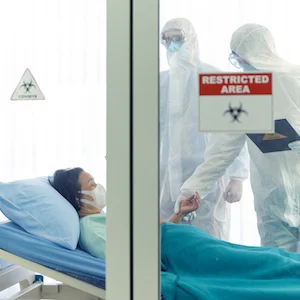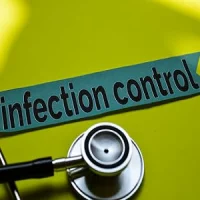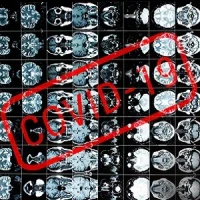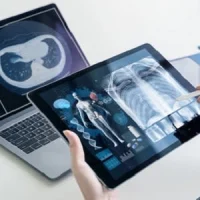Amidst the dreaded COVID-19 pandemic, radiologists are racing to figure out how medical imaging can be of help in screening or speeding up diagnosis of people with infection.
While some recent studies suggested the use of computed tomography (CT) for COVID-19 diagnosis, an article in The Lancet urges caution and encourages using existing guidelines on appropriate use of CT imaging.
You might also like: CT Scan Best for COVID-19 Diagnosis
Recent reports from China, where the new coronavirus first broke out, cited CT imaging's "high sensitivity" for detection of COVID-19. In one study, Tao Ai and colleagues found that 97% of 1,014 patients – with COVID-19 confirmed by reverse transcription polymerase chain reaction (RT-PCR) – had CT findings of pneumonia.
In contrast, researchers who reviewed CT scans of 112 cases of RT-PCR-confirmed COVID-19 from the Diamond Princess cruise ship, reported these key findings: 61% of cases had lung opacities on CT and 20% of symptomatic patients had negative CTs.
The CT findings studied (eg, ground-glass opacity, consolidation) are not specific for COVID-19, and similar results would probably be found if CT were used during an influenza epidemic, according to The Lancet article.
CT findings in COVID-19 patients, as noted in the article, are seen with numerous pathogens and in many non-infectious aetiologies. This is compared with the higher reliability of RT-PCR, which is only positive in patients who are infected with severe acute respiratory syndrome coronavirus 2 (SARS-CoV-2), the virus that causes the COVID-19 disease.
The article therefore stresses that CT does not add diagnostic value and could lead to false security if results are negative. When COVID-19 is suspected, the article's advice is for patients to be isolated pending confirmation with (multiple) RT-PCR tests, or until quarantine has lapsed.
Moreover, during this time of pandemic, using CT to examine COVID-19 patients presents logistical challenges and can overwhelm available resources. "Even with proper cleaning protocols, healthcare professionals and CT scanners could become vectors of infection to other vulnerable patients who require imaging," the article explains.
Source: The Lancet
Image credit: iStock
Reference: Hope MD et
al. (2020): Correspondence: A role for CT in COVID-19? What data really tell us
so far. The Lancet 395(10231): P1189-1190. 11 April
DOI:https://doi.org/10.1016/S0140-6736(20)30728-5










